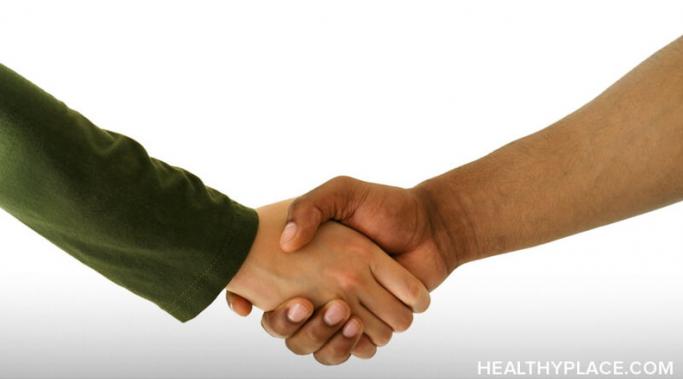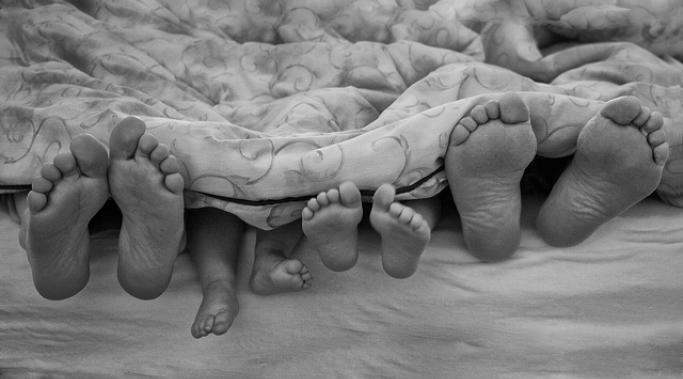Sponsorship during addiction recovery is one of the tenets of 12-step groups like Alcoholics Anonymous (AA). Many who have gotten, and remained, clean and sober have done so with the help of a sponsor guiding them through the process of recovery. While it has proven to be an effective tool in 12-step circles, some wonder whether sponsorship in addiction recovery is really an important element.
Relationships - Debunking Addiction
If you are caring for an addict – someone who has a drug or alcohol problem – then you know that taking care of the addict while still taking care of yourself isn’t easy. Addiction is not a spectator sport; it drags everyone around the addict into the game. Addiction tears families apart, causing such chaos and turmoil that it may seem like things can never get better. If you are a family member or loved one of an addict, you likely experience a mix of emotions when it comes to the one who is using drugs or alcohol – love, hate, pity, disgust, hopelessness, despair. It may feel like your life is not your own, that it revolves around the addiction, and it probably does right now. But, there are some things that you can do to restore some balance to your life even though you are caring for an addict while still taking care of yourself.
Forgiveness in my addiction recovery is important for my emotional and spiritual health. Addiction recovery takes much more than just going through the treatment process to become whole again, but it did provide me with the tools necessary to live a life that is free of alcohol. When I completed treatment four-and-a-half years ago, I had to put those tools to work and still have to remain vigilant to keep my recovery alive and successful. In treatment, I learned about addiction, triggers, relapse prevention, and the need for honesty, acceptance, and gratitude. However, there was another key element that has furthered my addiction recovery progress even more – forgiveness.
Improving sobriety by healing resentments is the ultimate goal of revisiting painful memories. When we have successfully navigated our memories and emotions, we have the opportunity to let them go so that they no longer harm us. In order for old resentments to no longer hold power over us, we have to choose to forgive ourselves and the other person. You can heal resentments to improve your sobriety.
Dating is hard enough as it is, but dating in alcohol and drug recovery and trying to figure out when to disclose that you are in recovery can make dating even more stressful. So when is the appropriate time to disclose that you're in drug and alcohol recovery to a dating partner?
Courage and confidence are emboldened by alcohol because it lowers inhibitions, thereby reducing the sense of fear--but you can find courage and confidence without alcohol. A common misconception is that courage is the absence of fear. However, courage is actually defined by taking action in spite of your fears. When regaining control of your life in early sobriety, developing courage and confidence is difficult if you have always relied on alcohol. For anyone adjusting to sobriety, here are a few suggestions to find courage and confidence without alcohol.
Talking to children about addiction and recovery may put recovering parents in a tough spot. Parents in early addiction recovery often struggle with explaining their drug or alcohol addiction to their children. Depending on their ages, some details of addiction are too graphic or complicated for children to understand. It’s important for the recovering parent to carefully consider the needs of the child. However, the parent's need for privacy during such a challenging and tumultuous process must be respected, too. Here are some suggestions to navigate talking to your kids about addiction and recovery.
Loving an alcoholic is challenging, regardless of whether or not the alcoholic is in recovery. There are certain personality traits common to alcoholics which add strain to relationships with friends, family, romantic partners, or professional connections when left untethered. What are some of these personality traits that come out when loving an alcoholic and how do they affect these relationships?
How should you deal with a loved one who is actively addicted? For friends and family of addicts and alcoholics, this heartbreaking question constantly presents itself. Guidelines are helpful, but many instances will need to be addressed on a case by case basis.
Early in recovery, a young woman who had gotten sober several years before me gave me some good advice. She said that when I felt like drinking, I should make a list of possible actions I could pursue and rank them in order from least destructive to most destructive. Actions such as praying or taking a bath would probably rank high on the list, while drinking and suicide would come in last. In the middle, I might list such things as shirking responsibilities to watch TV all day or going on a reasonable shopping spree. (I should mention, I have not struggled with shopping addiction.) When I felt the urge to drink or use, I was to start at the top of the list and work my way down.









